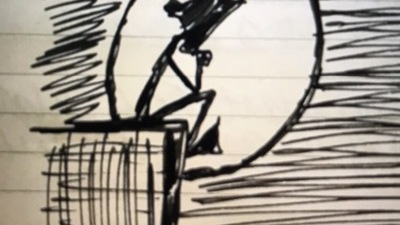Of course I’m not asking you to give away your passwords. But for those of you who have so many, how do you keep track of them all? Do you use any unique methods?
I know many people struggle between having something that’s easy to remember and something that’s easy to guess. If you keep a note with your passwords on it, for example, it can be stolen, lost, or destroyed, or if you make them according to a pattern that’s easy to remember, the wrong people might find them easier to guess.
In my experience the best way to remember passwords is to… Get a password manager
This is 100% the best advise. But how do you remember your password managers password? I highly recommend Computerphiles tips, I’ve never seen it explained better: https://youtube.com/watch?v=3NjQ9b3pgIg
(Join 3-4 random, unrelated words for a strong, memorable password)
how do you remember your password managers password
another password manager
Until finally there is one to bind them all.
And that password is written on a scrap of paper attached to my monitor. Perfect security.
It’s easy enough to remember one long password, when it’s prompted often.
https://xkcd.com/936/ Because theres one for every situation.
I definitely use a password wallet.
And because I’m getting into the demographic where my peers are going through end of life planning (whether for their parents or themselves), I have written my master password down and keep it with the will/“very important papers”. Whoever settles your affairs will thank you.
Also, since I’ve wrangled with this one specifically, when a loved one passes keep their mobile number active so you can navigate mfa and password resets for their accounts.
If you only have one password for all the things you don’t need to be pretty forgetful to forget the word.
deleted by creator
deleted by creator
I don’t. Bitwarden and that’s it.
deleted by creator
I only remember one password, the one to my password manager.
Password manager
KeePassXC/DX.
Bitwarden and be done.
Nice try
Keepassxc remembers for me.
Bitwarden
For passwords you have to keep in your head, diceware. Surprised it’s not already mentioned! Basically you roll dice to choose words from a long wordlist until you have 6 or 7 words.
Human brains are good at remembering words. It’s way easier to remember a password that looks like:
grandson estimator virtuous scabbed poet parasiticthan it is to remember a random character string.
I have a friend who resets his passwords whenever he connects. So he only remembers one password, that of his email. He claims it’s safer this way.
Theres… There’s something to it, I guess. Make sure your email is secure, and if not even you know your password, how can someone else. Christ, it sounds like a massive pain in the ass, though.
Exactly, like I agree with him on principle but it’s too time consuming.
They’re all the same-ish.
Let’s say my password is Token, but spelled like t0k3||
I would attach something related to the site on it, so if the site is lemmy for example, the password would be like
t0k3||Addictedtosurfing
If the site is Amazon something like
t0k3||Thanksformyfavoritejob
I called it “lock and key” style and I’d change the beginning part, the “lock”, once a year.
So next year it’ll be ef|=027Addictedtosurfing
These are examples lol
Pretty much this. But I used a function of the host name, so it would be easier to remember.
It gets annoying when the site forces you to rotate the password. After that happened a couple of times I started using a password manager.
I guess you can sha256 hash them for extra security too












